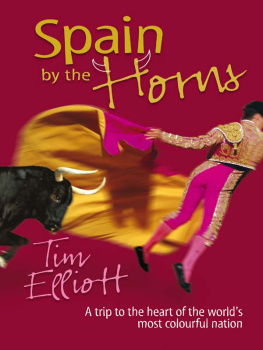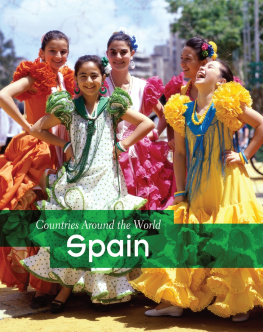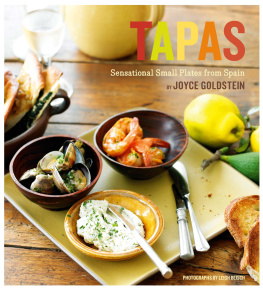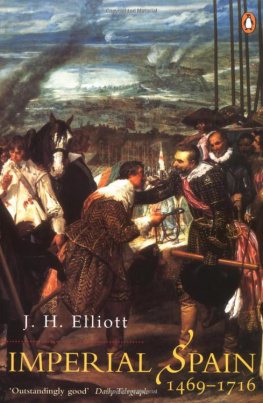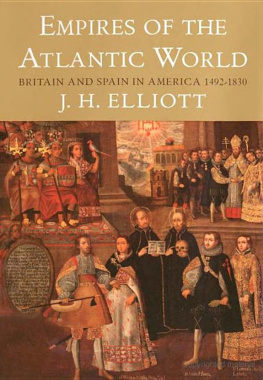
Tim Elliott is an award-winning journalist and author whose work has appeared in The Sydney Morning Herald , The Australian Financial Review , The South China Morning Post , Londons The Financial Times and, somehow or other, Czech Playboy . His first book, The Bolivian Times (Random House, 2001), is an account of six months he spent working on an English-language paper in South America. His work also appears in the anthology Come Away With Me (Bantam, 2004).

All rights reserved. No part of this book may be reproduced or transmitted by any person or entity, including internet search engines or retailers, in any form or by any means, electronic or mechanical, including printing, photocopying (except under the statutory exceptions provisions of the Australian Copyright Act 1968 ), recording, scanning or by any information storage and retrieval system without the prior written permission of Random House Australia. Any unauthorised distribution or use of this text may be a direct infringement of the authors and publishers rights and those responsible may be liable in law accordingly.
Spain by the Horns
9781742754727
SPAIN BY THE HORNS
A BANTAM BOOK
First published in Australia and New Zealand in 2005 by Bantam
Copyright Tim Elliott, 2005
All rights reserved. No part of this publication may be reproduced, stored in a retrieval system, transmitted in any form or by any means, electronic, mechanical, photocopying, recording or otherwise, without the prior written permission of the publisher.
National Library of Australia
Cataloguing-in-Publication Entry
Elliott, Tim.
Spain by the horns.
ISBN 1 86325 469 2.
1. Elliott, Tim Travel Spain. 2. Spain Description and travel. I. Title
914.6
Transworld Publishers,
a division of Random House Australia Pty Ltd
20 Alfred Street, Milsons Point, NSW 2061
http://www.randomhouse.com.au
Random House New Zealand Limited
18 Poland Road, Glenfield, Auckland
Transworld Publishers,
a division of The Random House Group Ltd
61-63 Uxbridge Road, Ealing, London W5 5SA
Random House Inc
1745 Broadway, New York, New York 10036
Cover design by saso content and design
Cover images courtesy Getty Images
To Margot and Mia
Contents
I FIRST HEARD ABOUT Jesuln through Julio, a retired matador who now lives in Sydney. I was sitting at home reading the newspaper when I came across a short but intriguing story about a man who had been spotted performing strange and elaborate rituals on Sydneys Manly Beach. No one knew exactly what he was doing, but it was thought he might be a bullfighter, as he always carried a red cape and a sword. The story said he was usually to be found in front of the volleyball nets. Being a freelance journalist and a fan of all things Spanish, it struck me that he might make for an interesting article. When I rang the newspaper, however, they told me that they didnt have any contact details: no name, no address, no place of work or phone number. And even if they did, they werent about to give them out over the phone. All they could tell me was that the mystery matador was well known to locals, especially the early morning crew who for some unknown reason made it their habit to jog along the beach at dawn. As fulfilled as I was by my work at the time writing real estate copy for my local newspaper I had to admit I found the idea of a matador fighting invisible bulls on a Sydney beach infinitely more interesting. And so I determined to track him down.
After an infuriating week of false leads and runarounds, I finally found him, shacked up in a 1950s-era apartment block, the entire faade of which was one enormous paint blister. On the wall beside the front door was an intercom panel that looked to have been recently vomited on. Only after trying every button did I finally strike the jackpot, at No. 11.
Having been buzzed in, I proceeded down the corridor till I reached the apartment, the door of which had cracked open to reveal a slightly built man in his late twenties, standing there in a tight white singlet and pair of leopard-print pyjamas.
Hello, I said.
Ello, he replied.
Are you the bullfighter? I asked.
Blankness.
Are you Spanish? I asked.
Ahh
Do you know anyone whos Spanish?
Yes, yes, I yam Espanish. His eyes narrowed. And who are you?
I am writing an article on Spain, I said. And matadors.
So?
I was hoping that you might be able to help me. Youre the matador in the paper, right?
I might be. He looked skeptical. Look, the thing is, I am still sleeping. I yam estill esleepin. Can we talk later?
I gave him my number and apologised for waking him. Then I headed back to my car. On the way home it began to rain, the world beyond my windscreen running like mascara. I was sure he wouldnt call, but when I got home there was a message on my answering machine.
Dis is Julio, de bool fighter
He said to be at the Mosquito Caf, near his apartment, at 5 pm, sharp.
It took me some time to recognise Julio at the caf. He had undergone a transformation. Gone were the pornstar pants and the singlet; he now wore a lime-green shirt and pressed trousers. He looked impossibly dapper; his wavy hair like wet coal, his face an unlikely collection of striking features knobbly nose, shovel-shaped chin, large eyes that made it impossible to tell if he was uniquely handsome or just ugly.
Hola! he said, offering his hand. My name is Julio Cuadros de Talavera and I yam very pleased to meet you.
I offered to buy him a beer, but he declined. I am in training. He then apologised for being so aloof that morning. Recently I have some trouble with de police. They do not like me carrying a sword on de beach.
We got to talking. Julio (or rather, Hoolio in Spanish the letter J is pronounced H) had been in Australia for six years. He had, indeed, been a bullfighter in Spain, but these days he worked as a day chef at the Hotel Grand Pacific. He also taught Spanish on the side. I got the impression it was a struggle to make ends meet. He had originally come to Australia to forget about bullfighting, or de bools, as he called them, but this had proved an abject failure. Even out here, thousands of miles from home, bullfighting dominated his life. He was obsessed by it. He trained almost every day, apart from days like today, when the wind made cape work impossible. Once de bools is in your blood, he said, you cannot deny it. It is like they are running in your veins.
Julios bullfighting career had begun at one of Spains most prestigious bullfighting schools, the Escuela de Tauramaquia de Madrid. From there he began serving his apprenticeship as a novillero (someone who fights novillos , or young bulls). He fought for several years in two-bit bullrings, end of the earth towns and country fairs, gradually working his way up to the point where he could earn a regular living without relying on fill-in jobs. You cannot believe how competitive bullfighting is, he told me. Every poor kid from the suburbs wants to be a matador. They see it as an escape route, a way off the street.
Julio did better than most. He survived a few nasty gorings and even developed a small following. Then, just on the cusp of major success, something went wrong. Julio remained vague on the details, only indicating that there had been some kind of crisis. I pressed him, but all he would say was that in the world of bullfighting there is much pressure and much corruption.

